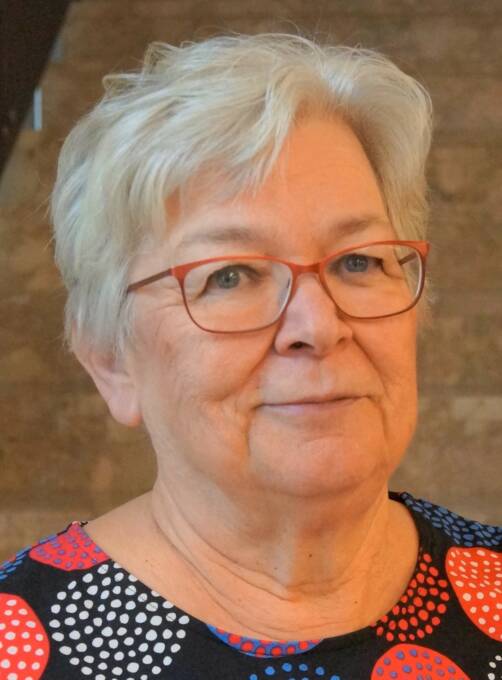Democracy, Freedom, and My Church
by Hannele Ottschoffski | 14 December 2023 |
I have often wondered why we do not learn from our history.
Then I realized that many people do not know our history. Even as a person who has lived more than 75 years on this earth, there are lots of things I don’t know, just because I wasn’t an eyewitness and didn’t experience it myself. That is why we need monuments and museums to transmit information to succeeding generations.
Our German constitution, the Grundgesetz, is based on democracy and equality. No matter what political parties make up the government, that is one thing that the parliament agrees on. The “never again” to anti-semitism is echoed repeatedly. However, the surge in extremism is a source of concern to all responsible people. That is one reason why it is so important to transmit to the population a sound knowledge of history and information about how democracy works.
We need information now more than ever. The last survivors of the Shoah are old and will soon be gone. We need to hear their stories. The generation born after the fall of communism needs to hear what life was like for people who lived without freedom. The same could be applied to the whole world with its various experiences of suppression and discrimination.
East Germany
Recently we joined a group on a trip to Berlin. We visited the Reichstag, Germany’s seat of the parliament. We also visited the Jewish Museum, the Topography of Terror (the documentation center for crimes of the Nazi regime), memorials of the Berlin Wall, and the prison of the Stasi—the East German secret police. These left impressions that are hard to digest—but it is good to get first-hand information.
Not having lived in Berlin, east or west, the division of the city and the isolation of the German Democratic Republic (GDR) is something I have heard and read about but not experienced. I had seen the wall, and we even once visited East Germany and experienced harassment at the border. But still, our visit to the Tränenpalast (Palace of Tears) at the former border crossing at the Friedrichstrasse train station made a deep impression on me. It helped me to catch a glimpse of the emotional side of living under a dictatorship, in a country without freedom.
After the uprising on June 17, 1953, was repressed by Soviet tanks and the arrest of thousands of demonstrators, many East Germans tried to leave the country. The government attempted to stop the mass migration to West Germany. From 1949 to its end in 1990, the GDR population fell from 18.79 million people to around 16.43 million people, in spite of a high birth rate. With thousands crossing over to West Berlin each week, closing the border and building a wall—starting on August 13, 1961—seemed to be the only way to keep the nation from bleeding out.
While the Federal Republic of Germany (West Germany) was founded in 1948 under democratic principles, the GDR was democratic only in name. It was a dictatorship hiding behind a farce of democracy, with a one-party system and threats and retribution for any opposition. It was intended to be a communist bulwark against the West during the Cold War.
The older generation still remembers what it was like to live in that restrictive community, where political prisoners could also be stripped of their citizenship, expelled, and exchanged for Western currencies.
A bleeding church
I hardly dare suggest the comparison that comes to mind with the world church I belong to. Maybe you see the similarities, too.
Church leadership is proud of the increasing numbers in, claiming thousands, sometimes millions, of accessions through baptism. But at the same time, the statistics show a constant bleeding of members leaving the church. Instead of considering why people are leaving, the church is tightening its rules about membership and taking a hard line toward those that disagree with them.
We know that our church, in its early years, was more open and egalitarian. Those early believers understood unity in diversity.
Today, the church is ruled by fear: fear that everything will fall apart if freedom of thought and change is permitted. The church structure is a sham democracy with hierarchical tendencies. Yet according to his address at Annual Council in 2023, its leader wants us to believe that its every decision is divinely inspired.
Opposition is not welcome. Workers who do not agree 100% with the leader, suggested the president, should resign. He speaks approvingly in his sermons of “the shaking” to justify the loss of members brought, at least partially, by his constant disapproval. In its efforts to enforce compliance, the leaders in Silver Spring have become very manipulative.
It is no wonder that many are leaving the organized church. Staying might be a better solution if there were any hope of change coming. But many have given up hope. They would rather escape outside its unwelcome walls.
Recently the Nobel Peace Prize was awarded to Narges Mohammadi, in absentia. She said from her Iranian prison, “I gave up everything for my commitment.” Her motto is: “Woman – Life –Freedom.” She has fought for change in her country all her life. She is not the only one subjected to imprisonment in various countries for their commitment to freedom and democracy.
We could learn a lot from political and social activists who fight for change.
 Hannele Ottschofski writes from Hechingen, Germany. She is the author of Tired of Waiting: Women in Church and Society.
Hannele Ottschofski writes from Hechingen, Germany. She is the author of Tired of Waiting: Women in Church and Society.
To comment, click/tap here.




